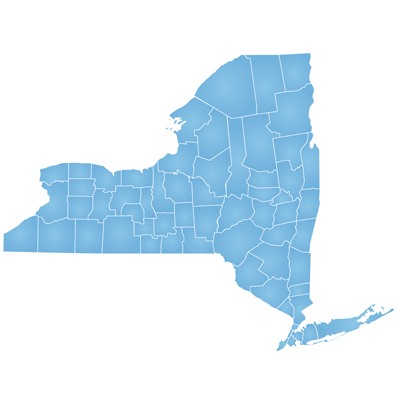ABA president urges New York governor to support independent oversight of indigent defense

ABA President Linda Klein has called on New York Governor Andrew Cuomo to support an independent statewide indigent-defense system.
In a letter (PDF) dated Feb. 24, Klein highlighted the ABA’s 10 Principles of a Public Defense Delivery System (PDF), which lays out standards for indigent defense systems. She notes that the first principle is that indigent defense systems should be independent from political influence, and overseen by a nonpartisan board rather than the political branches of government.
Cuomo, a Democrat, served as attorney general for the state from 2006 to 2010 before becoming governor. He vetoed a bill in December that would have granted state funding to indigent defense in every New York county, phased in over several years. As Klein notes, Cuomo’s veto message included a request for more gubernatorial control over the quality of public defense.
“Over the long term, proper governance would protect New York’s public defense system from political pressures,” Klein wrote. “Having been created for the purpose of ensuring independence from political pressure, the New York State Office of Indigent Legal Services lends itself to proper oversight.”
Currently, indigent defense in the state of New York is largely funded by counties. Five counties are exceptions because they were part of a 2014 settlement in Hurrell-Harring v. State of New York. As the ABA Journal noted in a feature article last year, that lawsuit said indigent defense in certain areas was so bad that the state was effectively denying counsel to its citizens, in violation of its constitutional obligations.
The county-level funding system has been widely criticized for failing to adequately fund indigent defense. A 2006 report from the New York State Commission on the Future of Indigent Defense Services called it “severely dysfunctional” and incapable of providing effective assistance of counsel. The New York Times editorial board said in an opinion piece last month that defendants in some counties are in jail for months before they see a lawyer, and some public defenders handle as many as 700 cases at once.
The system is also unpopular with counties, some of which routinely struggle to find the funding for public defenders. The reform bill vetoed by Cuomo passed both houses of the New York legislature unanimously.
Klein’s letter, perhaps anticipating another attempt at indigent defense reform, says she looks forward to seeing a bill “in which the state both guarantees independent oversight and funds basic expenses and quality improvements.”
As the letter notes, the ABA had previously weighed in on New York’s indigent defense system with a presidential letter sent in August of 2016; a statement to the New York Office of Indigent Legal Services in August of 2015; and with a statement to the New York City Council in January of 2015.
ABA Ethics Opinion 06-441 says supervising lawyers in public defender offices have an ethical duty to control staff workloads so they can ensure adequate representation. The ABA House of Delegates supported that with 2013’s Resolution 104C, which urges states to prohibit firing public defenders who stop accepting new clients out of workload concerns.



